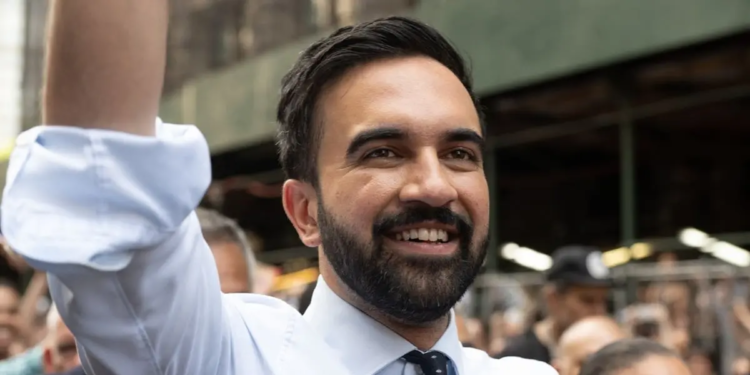On the eve of the municipal election, New York is holding its breath. If the polls are confirmed this Tuesday, November 4, the American metropolis could experience a historic election: that of Zohran Mamdani, favorite in the polls and on the way to becoming the first Muslim mayor, the first of South Asian origin, and the first born in Africa to lead the city.
A field campaign, anchored in working-class neighborhoods
Born in Kampala, Uganda, and the son of renowned academic Mahmood Mamdani, Zohran Mamdani grew up in Queens before entering politics. Elected as a New York State deputy, he built his campaign on tireless commitment to working-class neighborhoods: free transportation, universal childcare, rent freezes, and fairer taxes.
“Leave everything out there on the field,” he told his supporters gathered in the Astoria district, calling on them to “give everything” before the vote.
According to the electoral commission, more than 735,000 voters have already voted early – a figure four times higher than in 2021, a sign of strong mobilization.
Faced with Cuomo and Trump, two visions of New York
His main opponent, Andrew Cuomo, former governor of the state, is running as an independent and has received unexpected support: that of Donald Trump, who described Mamdani as a “dangerous communist”.
During the final days of the campaign, Donald Trump inflamed the controversy by accusing Zohran Mamdani “of hating the Jewish people”, a statement which sparked strong reactions even in the New York Jewish community.
This support reinforced the polarization of an already tense campaign. Voters are now faced with two city models:
- that of Cuomo, anchored in the established order;
- that of Mamdani, based on redistribution and social justice.
Added to this are the controversies surrounding Andrew Cuomo himself, still marked by accusations of sexual harassment which precipitated his resignation from the post of governor in 2021.
A symbol of openness in a world of withdrawal
If his victory is confirmed, Mamdani will embody much more than political change. It will symbolize the reinvention of the New York dream, where the children of immigrants, long confined to the social and political periphery, reach the top of municipal power.
Zohran Mamdani’s possible victory would have repercussions well beyond the United States. In a world rife with identity tensions and nationalist withdrawals, the election of a Muslim mayor in New York would send a signal of openness and confidence in diversity.
A historic turning point — perhaps the most symbolic for the city since the election of David Dinkins, the first African-American mayor, in 1989.
Also read:








